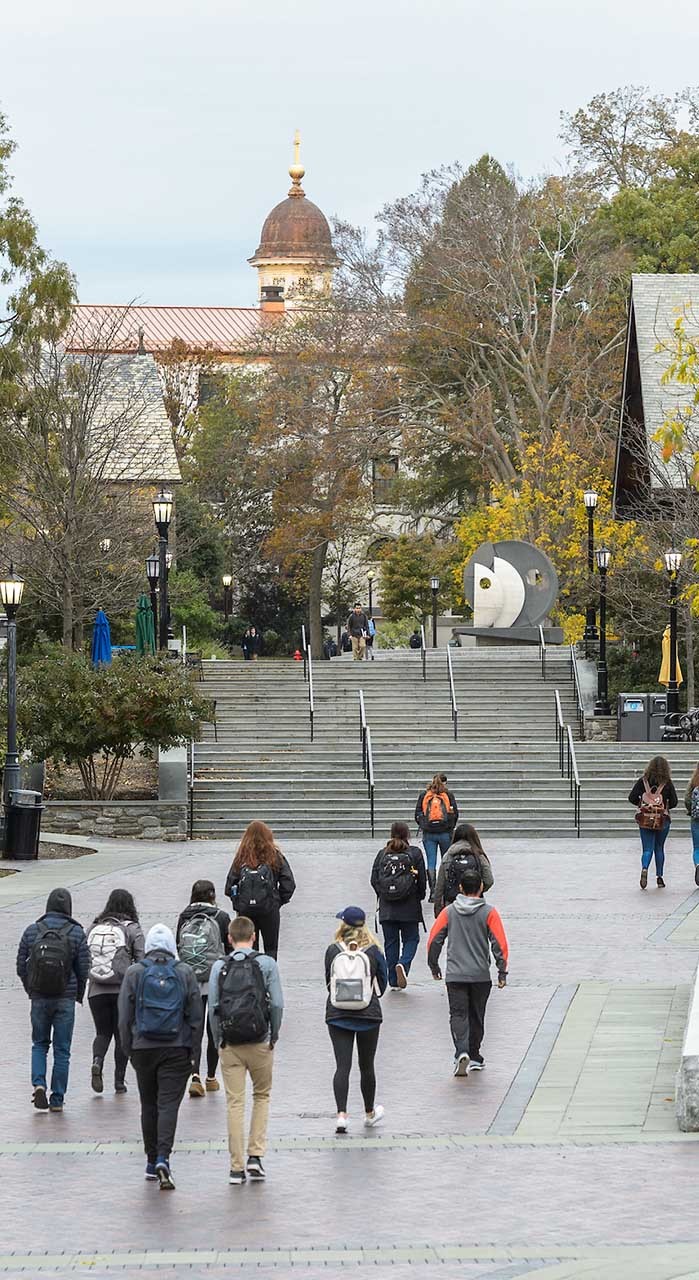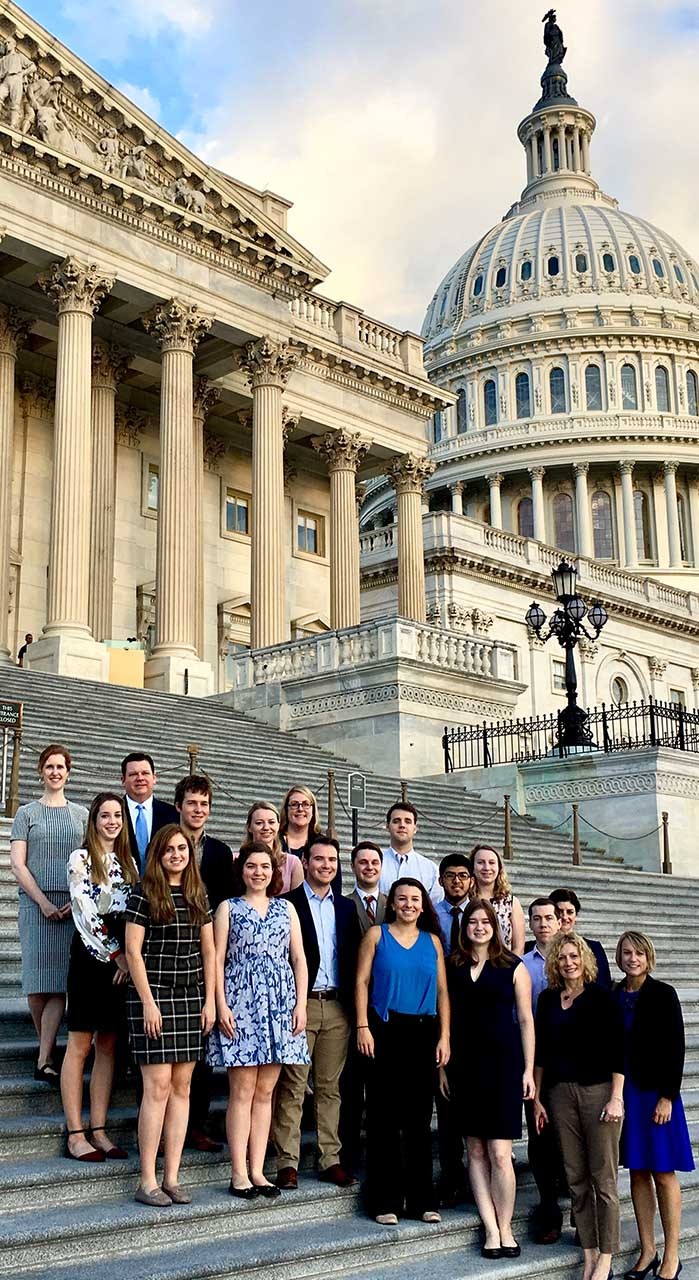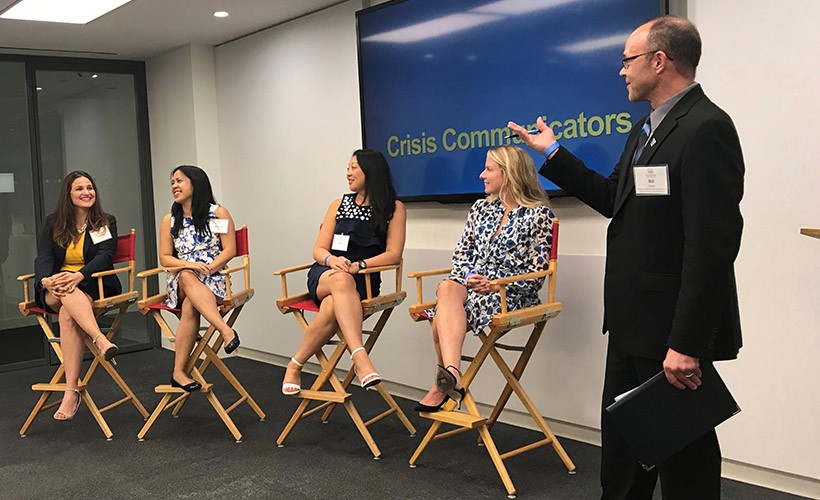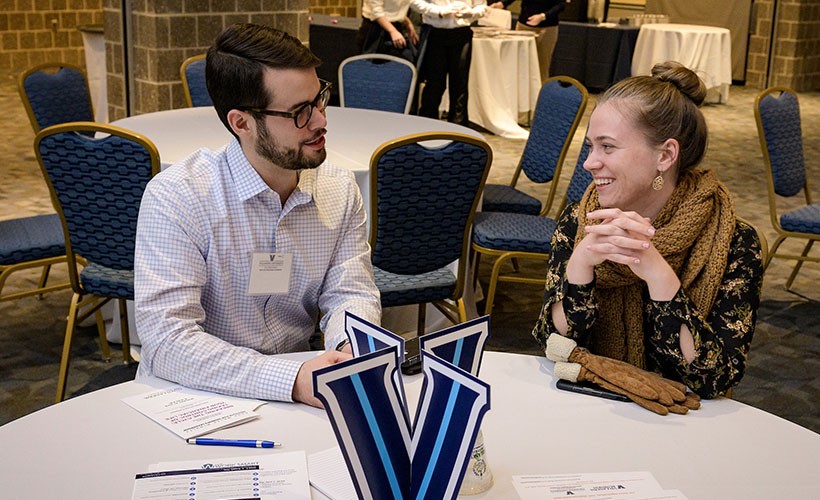CAREERS AND BIOLOGY ALUMNI
Why Study Biology?
Biology lies at the heart of the most fascinating questions in science: How did we get here? How did evolution generate the staggering diversity of life on Earth? Biology also holds the keys to solving the world’s most urgent problems: stopping pandemics, predicting how ecosystems respond to climate change. Accordingly, many of the hottest careers for the future are grounded in biological sciences.
Career Possibilities
The program promotes the skills and spirit of inquiry necessary for life-long learning. The field of biology provides many career choices. Through required curricular elements in biology, chemistry, mathematics, and physics, and advanced biology electives, Villanova's program provides a foundation for graduate study in the biological sciences, health professions, law, education, business or a basis for employment in the fields of applied biology, biological research, environmental and health sciences, or teaching.
Secondary Education Teaching
Many people interested in biology find their greatest rewards in introducing others to the subject. Biologists who teach in secondary schools typically are not experts in a particular branch of biology. They must be generalists who view the whole field of biology and are capable of providing students with insights to the broad spectrum of knowledge of living organisms. Secondary school biology teachers frequently are involved in teaching other science courses. Villanova offers a secondary education program.
College and University Teaching
Teaching at the post-secondary level typically requires no formal training in teaching but does require considerable training in one or more disciplines of biology. Generally, a doctorate is required, although some colleges occasionally have positions available for individuals with only a master's degree.
Opportunities for teaching at the college level exist in all types of colleges and universities. However, the large number of qualified individuals seeking such positions makes these jobs highly competitive. Success as a college or university professor is increasingly dependent upon the maintenance of active, independent and/or collaborative research.
There is a variety of opportunities in industry for the biologist. Many industries hire biologists to help reduce pollution or to investigate the safety of products, and the number of environmental consulting firms that hire staff biologists is growing.
Pharmaceutical and chemical firms have openings for biologists. Biotechnology companies and firms engaged in agricultural research employ many biologists.
Villanova University’s Health Professions Advising Office is a full service office open to all students pursuing degrees in the health professions. We work with students through every aspect of their journey, beginning with the earliest exploratory stages, continuing through the search process to compile courses and to set up beneficial experiences, and concluding with the process of assembling and reviewing application materials.
Villanova has affiliate programs with the Kornberg School of Dentistry at the University of Pennsylvania, the Pennsylvania College of Optometry at Salus University and the Philadelphia College of Osteopathic Medicine.
Museum and zoological park curators possess exceptional knowledge of different groups of animals and are responsible for the collection, identification, maintenance, and study of specimens in their areas of specialization.
Museum teachers, preparators and artists aid museums or zoological parks to make information available to the public through exhibits and lectures. Preparators mount and care for skeletons, skins, and other specimens. Artists design background, make reproductions, and illustrate material in other ways.
In medical, biological agricultural, and industrial libraries, science librarians perform the usual services of ordering circulating and binding books and journals; making literature searches; and compiling reports and bibliographies in biomedical fields.
Such positions are found in college, university, or hospital libraries; in governmental agencies; in dental, medical, nursing, and pharmacy schools; in oceanographic and marine laboratories; with medical societies; and in pharmaceutical houses.
Opportunities in these fields are burgeoning for graduates who can combine college-level training in biological science with a law degree. Major law firms are increasingly including environmental law in their practices.
Many government agencies and non-governmental organizations also maintain staff positions for environmental lawyers. The emergence of new biotechnologies based upon recombinant DNA methods has created increased demand for patent lawyers with a knowledge of biology.
Science writers are employed by pharmaceutical firms, insurance companies, wildlife organizations, newspapers, and magazines. To meet communication needs, individuals are employed to translate scientific knowledge and discoveries into language or visual material which is understandable and interesting to the lay public without losing scientific accuracy.
These organizations include a wide variety of research, lobbying, advocacy and public education groups, many of which offer employment opportunities for graduates with training in biology.
Organizations such as the World Wildlife Fund, the Audubon Society, Conservation International, and the Nature Conservancy hire conservation biologists, ecologists, and zoologists. Other groups, such as the Natural Resources Defense Council, are more heavily involved in policy development related to public health issues, in addition to research.
Agencies of the federal government provide opportunities in applied biology for varied specialties. Such positions may be in laboratories, hospitals, field stations, or administrative offices. In addition to agencies of the federal government, state, county, and municipal governments have some opportunities for biologists.
Graduation and Graduate School
The Department of Biology at Villanova University provides research training and advanced coursework in a broad range of the biological sciences. The graduate programs seek to build a diverse, intellectual community that enhances the scholarship of all members.





